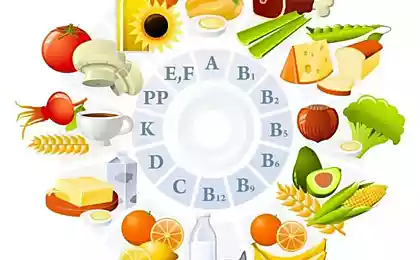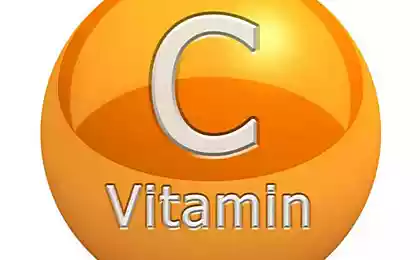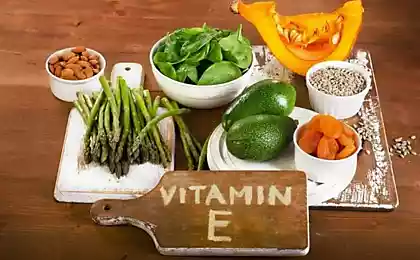503
Vitamin E and pregnancy. How and why to take it?
In the period of carrying a child in need of biologically active elements and nutrients increases manifold. The reason is quite simple – a significant part of the resources takes a child. Vitamin E for pregnant women what dosage is recommended to take? What can cause excessive intake of this substance?
The role of vitamin E (tocopherol)
Tocopherol is considered to be "women's" vitamin and during pregnancy it becomes of fundamental importance. This is emphasized even called "tokos" – "birth" and "ferro" – wear. Tocopherol is a strong antioxidant. It neutralizes free radicals, protects from cancer. Deficiency of this substance causes muscle weakness, drop in immunity, the development of anemia. If there is a strong deficiency of this substance, the woman may experience difficulties with conception and gestation. Tocopherol protects against adverse environmental factors and infections, which is so important during pregnancy.
This vitamin is "friendly" with other antioxidant – ascorbic acid. This tandem is the prevention of atherosclerosis and Alzheimer's disease. Tocopherol normalizes the transport of oxygen, prevents blood clots, relieves spasms of the lower limbs (during pregnancy phenomenon is not uncommon). Importantly, this substance is the guardian of the beauty of the expectant mother – it is responsible for the condition of the hair, skin and nails. Tocopherol helps to restore the disturbed menstrual cycle, promotes maturation of the infantile uterus in girls, treats ovarian dysfunction, improves reproductive function, builds the sexual glands (both women and men). It maintains normal hormonal balance (balance of estrogen and progesterone).
Vitamin E is necessary for normal childbearing. It prevents the risk of spontaneous abortion (including very early pregnancy). This substance protects against negative factors of the rapidly dividing cells of the embryo. Tocopherol contributes to forming the respiratory system of the baby. The action of this substance similar to the hormone progesterone – it controls maturation of the placenta (regulates its work, improves the condition of blood vessels, prevents detachment). Tocopherol is required for the production of the hormone prolactin is responsible for lactation.
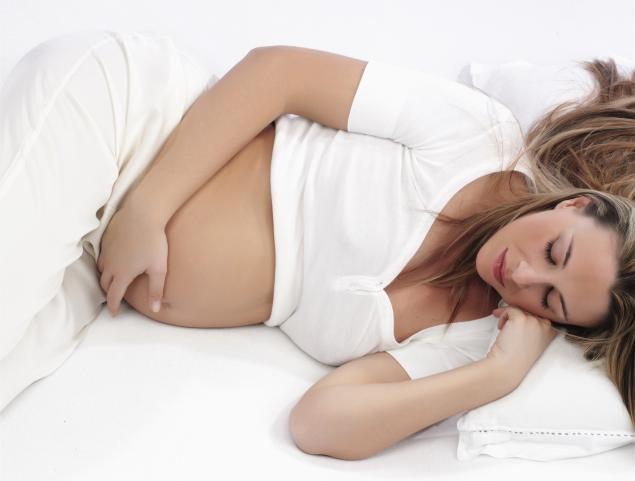
How to take vitamin E during pregnancy?
In small doses tocopherol non-toxic. If there is some excess of vitamin, it is almost completely excreted in the bile. Still, the dosage should be adhered to, and to appoint the drug can only doctor. The fact that the substance is fat soluble it tends to accumulate in the body, which can lead to overdose (and this condition is also undesirable, as the deficit). Excess of vitamin E leads to increased muscle tone during pregnancy this should be avoided (especially in the final stages of carrying a child). Long-term use of large doses can lead to increased blood pressure, toxic damage the cells of the kidneys, liver and intestines, as well as to the disruption of the oppression of microorganisms. In some cases may develop sepsis, ascites, enterocolitis, bleeding in the brain and the retina of the eye.
The average daily requirement of vitamin E is about 20 mg. Dosage of pharmaceutical drugs is usually done in international units (1 IU=1 mg of tocopherol acetate). The doctor may prescribe substantial doses of tocopherol (200-400 mg per day). All depends on the condition of the pregnant woman. The maximum allowable dose of 1000 mg per day. Quite often, the doctor prescribes vitamin E in combination with other vitamins (a specialist selects the optimal vitamin).
Food sources of vitamin E
It is worth remembering that vitamin E in pregnancy can be obtained from food. It is found in butter, vegetable oils, seeds, nuts, berries, rose hips, egg yolks, green vegetables, oatmeal, brown rice, buckwheat. A sufficient amount of tocopherol present in bran, wheat germ oil, whole grain foods.
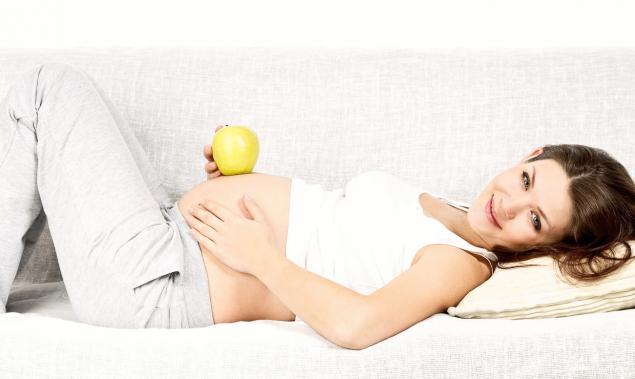
Additional recommendations
Inorganic iron is largely destroyed upon contact with the tocopherol – it is not recommended to combine iron preparations and vitamin E. it is Not necessary to eat iron-rich foods immediately after ingestion of vitamin E (you need to pause in 8-12 hours).
Vitamin E is extremely important for pregnant women is confirmed by practical research. Tocopherol designate almost all future mothers. It is critical to follow the doctor's recommendations – even though the drug in small doses and non-toxic, not worth the risk. It is imperative to include in the diet foods rich in this vitamin – "live" biologically active substances is much more useful synthetic.
Source: updiet.info/
The role of vitamin E (tocopherol)
Tocopherol is considered to be "women's" vitamin and during pregnancy it becomes of fundamental importance. This is emphasized even called "tokos" – "birth" and "ferro" – wear. Tocopherol is a strong antioxidant. It neutralizes free radicals, protects from cancer. Deficiency of this substance causes muscle weakness, drop in immunity, the development of anemia. If there is a strong deficiency of this substance, the woman may experience difficulties with conception and gestation. Tocopherol protects against adverse environmental factors and infections, which is so important during pregnancy.
This vitamin is "friendly" with other antioxidant – ascorbic acid. This tandem is the prevention of atherosclerosis and Alzheimer's disease. Tocopherol normalizes the transport of oxygen, prevents blood clots, relieves spasms of the lower limbs (during pregnancy phenomenon is not uncommon). Importantly, this substance is the guardian of the beauty of the expectant mother – it is responsible for the condition of the hair, skin and nails. Tocopherol helps to restore the disturbed menstrual cycle, promotes maturation of the infantile uterus in girls, treats ovarian dysfunction, improves reproductive function, builds the sexual glands (both women and men). It maintains normal hormonal balance (balance of estrogen and progesterone).
Vitamin E is necessary for normal childbearing. It prevents the risk of spontaneous abortion (including very early pregnancy). This substance protects against negative factors of the rapidly dividing cells of the embryo. Tocopherol contributes to forming the respiratory system of the baby. The action of this substance similar to the hormone progesterone – it controls maturation of the placenta (regulates its work, improves the condition of blood vessels, prevents detachment). Tocopherol is required for the production of the hormone prolactin is responsible for lactation.

How to take vitamin E during pregnancy?
In small doses tocopherol non-toxic. If there is some excess of vitamin, it is almost completely excreted in the bile. Still, the dosage should be adhered to, and to appoint the drug can only doctor. The fact that the substance is fat soluble it tends to accumulate in the body, which can lead to overdose (and this condition is also undesirable, as the deficit). Excess of vitamin E leads to increased muscle tone during pregnancy this should be avoided (especially in the final stages of carrying a child). Long-term use of large doses can lead to increased blood pressure, toxic damage the cells of the kidneys, liver and intestines, as well as to the disruption of the oppression of microorganisms. In some cases may develop sepsis, ascites, enterocolitis, bleeding in the brain and the retina of the eye.
The average daily requirement of vitamin E is about 20 mg. Dosage of pharmaceutical drugs is usually done in international units (1 IU=1 mg of tocopherol acetate). The doctor may prescribe substantial doses of tocopherol (200-400 mg per day). All depends on the condition of the pregnant woman. The maximum allowable dose of 1000 mg per day. Quite often, the doctor prescribes vitamin E in combination with other vitamins (a specialist selects the optimal vitamin).
Food sources of vitamin E
It is worth remembering that vitamin E in pregnancy can be obtained from food. It is found in butter, vegetable oils, seeds, nuts, berries, rose hips, egg yolks, green vegetables, oatmeal, brown rice, buckwheat. A sufficient amount of tocopherol present in bran, wheat germ oil, whole grain foods.

Additional recommendations
Inorganic iron is largely destroyed upon contact with the tocopherol – it is not recommended to combine iron preparations and vitamin E. it is Not necessary to eat iron-rich foods immediately after ingestion of vitamin E (you need to pause in 8-12 hours).
Vitamin E is extremely important for pregnant women is confirmed by practical research. Tocopherol designate almost all future mothers. It is critical to follow the doctor's recommendations – even though the drug in small doses and non-toxic, not worth the risk. It is imperative to include in the diet foods rich in this vitamin – "live" biologically active substances is much more useful synthetic.
Source: updiet.info/

